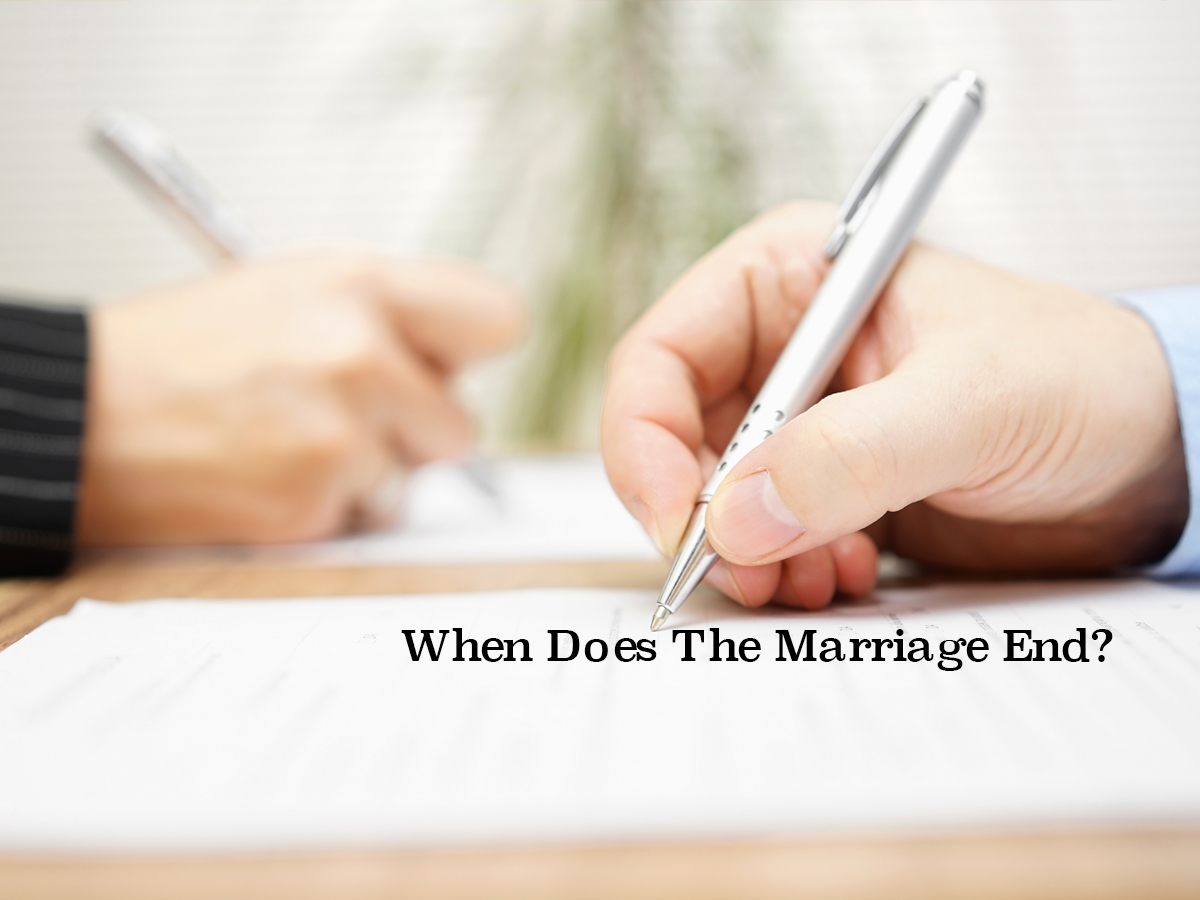When Does The Marriage End In A New Jersey Divorce?
“E” Is For The End Date Of Marriage:
When Does The Marriage End In A New Jersey Divorce?
In keeping with the theme of going through the basics of divorce letter-by-letter, we arrive at the letter “E,” which warrants a discussion of what constitutes the “end of the marriage.” In many instances, people may live apart for months or years prior to filing for divorce. One person may have thought that the marriage ended the day the parties separated, while the other person may have thought that the marriage was not truly “over” until a complaint for divorce was filed. Which person is right? It depends on the facts and circumstances of the case.
In 1974, the New Jersey Supreme Court decided the case of Painter v. Painter. The Painter Court decided that the “better rule” in a divorce is that the marriage ends on the day a complaint for divorce is filed, as opposed to the date the parties separate. However, the Court clarified that this rule is not absolute. In the cases that followed, the New Jersey courts have acknowledged that there can be other reliable indicia of the end of a marital partnership and have, therefore, used dates other than the filing date of the complaint for divorce as the end date of a marriage. One of the key inquiries has been to ascertain when the parties’ shared enterprise has ended. If there is evidence that the marital enterprise is no longer viable and has ended, that date may serve as the end date of the marriage (as opposed to the date of the filing of the complaint).
The end date of a marriage can be the subject of negotiations. For example, many parties seek to attend mediation prior to filing a complaint for divorce. A determination of the end date of the parties’ marriage would be a fair subject to discuss at the mediation.
A determination of the end date of the marriage can have a significant impact on the financial aspects of a divorce. First, the duration of the marriage is critically important to determining a fair alimony award (if alimony is at issue in the case). According to New Jersey’s alimony statute (N.J.S.A. 2A:34-23), “For any marriage … less than 20 years in duration, the total duration of alimony shall not, except in exceptional circumstances, exceed the length of the marriage or civil union.” Therefore, if a couple has a marriage of 10 years through the date of separation and a marriage of 13 years through the date of the filing of the complaint, a determination of the end date of the marriage would impact the cap on the duration of the alimony award. Alternatively, what if the parties separate 19 years into their marriage, but don’t actually file a complaint for divorce until they have been married for 21 years? Is the marriage more than 20 years long? If so, the Court may consider making an award of open durational alimony, which might not be reviewed until the party making payments reaches full Social Security retirement age.
Second, imagine a couple who separates on January 1, 2017. On June 30, 2017, after the separation, but before the filing of the complaint for divorce, the Wife receives 25 shares of Apple stock from her employer as compensation for a job well done. She files a complaint for divorce on August 30, 2017. Are the shares of Apple stock part of the marital enterprise? Should they be divided by the parties? Arguments can be made depending on the facts of the case.
In circumstances where the end date of the parties’ marriage is unclear or debatable, the facts must be explored. Please contact us if you have any questions regarding this topic.


